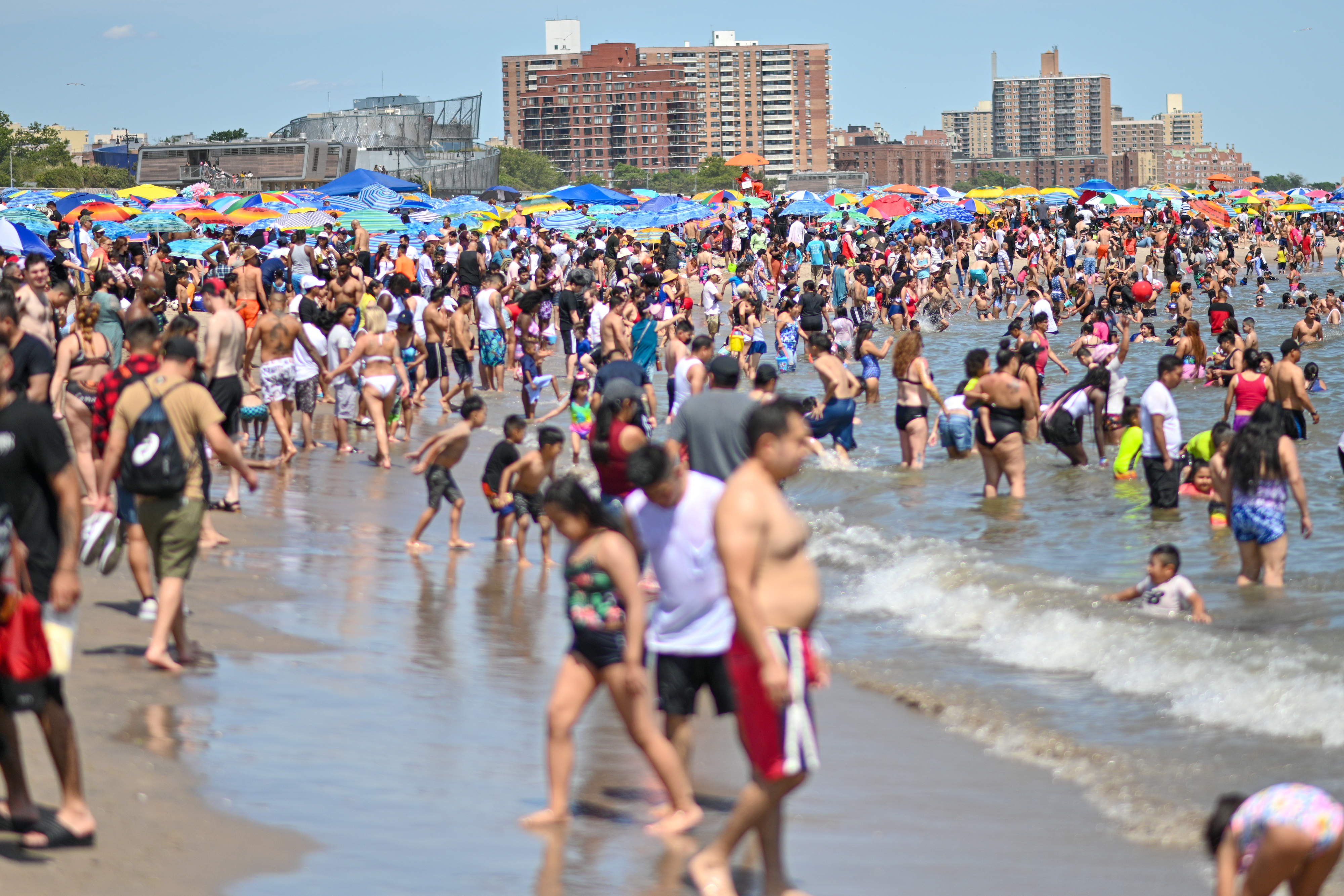People looking to cool off on a hot summer day at the Jersey Shore can swim worry free after being made aware of high levels of fecal matter in the water.
The New Jersey Department of Environmental Protection's Cooperative Coastal Monitoring Program (CCMP) tweeted Wednesday afternoon that resamples of more than a beaches put under advisories the day before came back within recreational standards.
The beaches would remain open and no further testing was required.
Get Tri-state area news delivered to your inbox.> Sign up for NBC New York's News Headlines newsletter.
A beach in Atlantic City and several Cape May County beaches were among 13 Jersey Shore waterfront locations under put under an advisory Tuesday due to high fecal bacteria levels.
The New Jersey CCMP said Tuesday that 13 beaches in the Garden State were under an advisory "as a result of exceeding the primary recreation standard" after recent heavy rainfall.
The Albany Avenue beach in Atlantic City, Atlantic County; Philadelphia beach in Cape May; and Hollywood beach in Wildwood Crest were among the Atlantic Ocean locations under the advisory. Beasley's Point Beach in Upper Township and 57th Street Bay in Avalon were among the bayside beaches under advisory in Cape May County.
Water off beaches and bays in seven Ocean County locations, including Seaside Park, Point Pleasant and Lavallette, also tested above the state standard, officials said.
The beaches remained open as further testing was carried out.
What does a water safety advisory mean?
The state lays out what a water safety advisory means as they monitor about 195 ocean and 25 bay monitoring stations each week:
"Samples are analyzed for the presence of Enterococci, a type of bacteria found in animal and human waste that is an indicator of possible poor bathing water quality. The New Jersey State Sanitary Code requires that the concentration of bacteria not exceed 104 colonies of Enterococci bacteria per 100 milliliters of sample. An exceedance of this concentration may be harmful to human health (see our Health Risk Information section)."
The beaches under the advisory -- where swimming is still permitted -- face another round of testing. Should that testing come back with unsafe levels of bacteria, the beaches will be closed.
"When a sample exceeds the state standard, a swimming advisory is issued and additional sampling is conducted and continues each day until the sample result is below 104 Enterococci/100 mL. If two consecutive daily samples exceed the standard, the bathing beach closes until sample results are below the standard."
Poop-related water contamination is more common than you might want to believe.
About half of the beaches nationwide tested potentially unsafe last year due to fecal contamination levels with at least one day exceeding the EPA's "Beach Action Value," a preventative tool to measure bacteria, according to a report by Environment America.
Sign up for our Breaking newsletter to get the most urgent news stories in your inbox.



